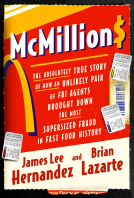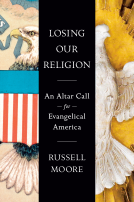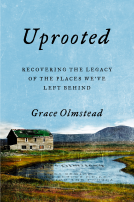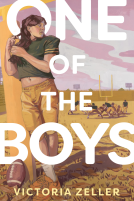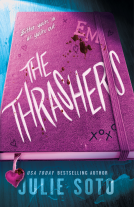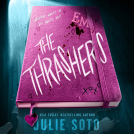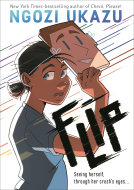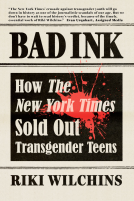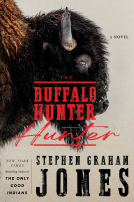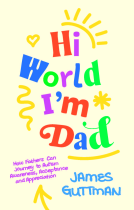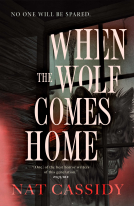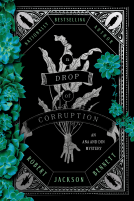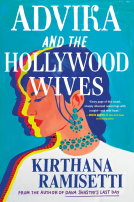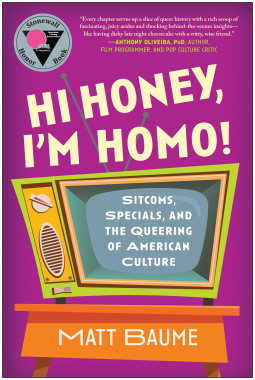
Hi Honey, I'm Homo!
Sitcoms, Specials, and the Queering of American Culture
by Matt Baume
This title was previously available on NetGalley and is now archived.
Send NetGalley books directly to your Kindle or Kindle app
1
To read on a Kindle or Kindle app, please add kindle@netgalley.com as an approved email address to receive files in your Amazon account. Click here for step-by-step instructions.
2
Also find your Kindle email address within your Amazon account, and enter it here.
Pub Date May 23 2023 | Archive Date Jul 31 2024
BenBella Books | Smart Pop
Talking about this book? Use #HiHoneyImHomo #NetGalley. More hashtag tips!
Description
2024 Stonewall Book Honor Award Winner—Israel Fishman Non-Fiction Book Award
Featured on NPR's Books We Love 2023
One of Vulture's Best Comedy Books of 2023
"This book is a triumph and everyone should read it."
—Dan Savage, journalist and author, on the "Savage Lovecast"
"Hi Honey, I’m Homo is a heartbreaking historical document, but ultimately one that will leave the reader feeling proud of how something as maligned and disposable as the network sitcom used comedy to bring about such profound and important social progress."
—Vulture
"[A] well-curated compendium of prime time broadcasting . . . Baume is a companionable guide."
—Shelf Awareness
Behind the scenes of the most popular sitcoms of the 20th century, a revolution was brewing.
For decades, amidst the bright lights, studio-audience laughs, and absurdly large apartment sets, the real-life story of American LGBTQ+ liberation unfolded in plain sight in front of millions of viewers, most of whom were laughing too hard to mind.
From flamboyant relatives on Bewitched to closely-guarded secrets on All in the Family, from network-censor fights over Soap to behind-the-scenes activism on the set of The Golden Girls, from Ellen’s culture clash and Will & Grace’s mixed reception to Modern Family’s primetime power-couple, Hi Honey, I’m Homo! is the story not only of how subversive queer comedy transformed the American sitcom, from its inception through today, but how our favorite sitcoms transformed, and continue to transform, America.
Accessible, entertaining, and informative, Hi Honey, I’m Homo! features commentary and interviews from celebrities, behind-the-scenes creators, and more.
Featured Reviews
 Aaron M, Librarian
Aaron M, Librarian
This book lived up to its humorous title and presented a master class in the exploration of queer themes and storylines in the American sitcom industry over the past four decades.
For those unaware, Matt Baume is writer and video essayist, his videos delving into the intersection between queer identity and popular culture have garnered a respectable following due in large part to his ability to adeptly balance in depth research with humorous presentation. And those were on full display in this book, it was witty, insightful, and well researched with enough behind the scenes detail to really sink your teeth into. The story of queer representation in media, as Baume relates, is a story of ups and downs, achievements and setbacks, overall a far more realistic and interesting history than a simplified gradual upward trajectory. Baume also expertly draws connections between these shows and the real life legal and cultural struggles LGBTQ Americans faced while they were on the air, demonstrating the interplay between media and real life events. The main thesis of the book, and one the author proves in my opinion, is that media does have real world effects; the way minority groups are represented (or not) on television does in fact matter a great deal.
Entertaining writing, a clear eyed grasp of the issues, and a meticulous attention to detail are the bedrock of this sweeping narrative history; it’s a must read for any fan of the sitcom genre or anyone interested in the history of queer representation in media.
I received an ARC of this book from Netgalley. My thoughts and opinions are my own.
I'm actually a huge fan of the author's Youtube page dedicated to, well, the topic of this book. Matt Baume analyzes milestones in queer pop culture through primarily TV shows. He does a pretty deep dive.
The book to some extent repurposes those topics and scripts while expanding upon them. As someone who does love his content, I must confess I wish there was new material. If you're unfamiliar with his work, this should be quite the treat.
As a GenXer, the shows he covers are truly the shows I grew up with, from toddlerhood to well into adulthood. Allow me to have a moment to weep. Watching Matt Baume's content, and now reading the book, really made me search my memory on how the episodes in question shaped me. I mean, obviously I was converted, and the actor who played Beverly Lasalle on All in the Family got a toaster oven. (This is a joke. I'm joking. Well...?)
One of the covered shows is All in the Family. Looking at the show now, so much of the language would never make the air, but for different reasons than were contentious at the time. I was 3, I believe, when the show premiered, so I grew up with the idea of Archie as out of touch, and Edith as downtrodden and kind in the way the older women in my family and community were. But I knew that if Edith thought someone was a good person, then they were, and I'm sure that must have made an impact.
As a kid, I was OBSESSED with reruns of Bewitched, and my burgeoning feminism was on display with my irritation that Sam was this amazing women who was constantly told by her husband not to be her amazing, creative self. I'd daydream about the magnificent life and marriage they could have had if he wasn't such a drip. This is why I married a Dale, not a Derwood, and why I say affirmations.
Matt Baume explored the show through another (related) lens, that I was less conscious of at the time. That the metaphor I picked up on works for a wide swath of people who felt they had to, in the words of the Beatles, hide their love away. They love being literal attraction and romantic bonds, but also creativity, the pressure to conform to gender norms -- whatever suburban normalcy dictates.
It occurs to me that even at a time when so many people were expected to be closeted, so many of those same people were my favorite people, and when the other penny dropped I was probably a much better person because they were employed by directors, and producers, and, oh, game show makers. Uncle Arthur was, after all, also the center square, and Charles Nelson Reilly was great on Match Game. (Matt Baume does do more in depth profiles of these men on Youtube, as well as Leslie Jordan, and George Takei.)
And that's at least a little bit the point. I wonder if younger readers will wonder why so many of the portrayals and the story lines were so elementary, so lacking in sophistication that Mr. Rogers would find it condescending, but these shows met people where they were, and helped shape the people who could only marvel now at sitcom characters that need to be told 5 different ways from Sunday that someone is gay.
To circle back to game shows, my husband and I have been watching reruns of What's My Line, which ran in the 50s and 60s. It's fascinating to view culture through that lens. The host would ask every woman, unless she was famous, if she was a miss or mrs. Any question that the often blindfolded panel would ask that inadvertently misgendered someone would be met with laughter, and always there was the assumption of heteronormativity -- that there simply were no other options. But the panel was stacked with sophisticated people, one the founder of Random House books, others who'd worked in the theater. They knew better, but it took other shows, other influential people, only pioneers, other people fighting for their rights, to speak the name of the "love that dare not speak it's name."
The fact that I know I've descended into long-windedness speaks to how thought provoking this book is, and how much I think the reader will enjoy it whether they're learning about these shows for the first time, or if they cut their teeth on them.
In my dream world, there would have been more material -- maybe on game shows, or on moments that didn't warrant their own chapter, but this shouldn't affect someone new to the material, and even people who are familiar should enjoy the elaboration.
My only other issue is minor. Each chapter was kinda treated as independent from the whole in some ways, much like Matt Baume would do in his videos, not assuming you'd seen previous content. But these chapters do exist in the same book, so sometimes the background "these were the initiatives and the zeitgeist of the moment" material was repetitious, especially when the shows in questions aired simultaneously or close on the heels of one another.
Absolutely recommend. When I released I'd been approved for an ARC, I reversed my pre-order of the audiobook, but I think I'm going to go on ahead and reinstate it. If you're a nerd like me, you might enjoy looking up the episodes and moments the author covers. (Shame on you, Marcus Welby!)
This was so good. I really enjoyed the exploration of media throughout history and how it directly impacts the way people feel about serious political issues. I haven’t seen a majority of the sitcoms mentioned in this book but, now I know they exist, I definitely will.
This book also followed a similar theme that the sitcoms the author spoke of did, delivering messages through humour! It was gripping, easy to read and very informative
Thank you to NetGalley and the publisher for an arc of this book in exchange for an honest review.
I really enjoyed this book! It takes a look at queer themes and subtexts in sitcoms across the decades, and links them to cultural and political events happening during the time of the sitcom. I learned so much about queer history, and the role television has played in impacting LGBTQIA+ rights. The author had the perfect mix of humour and information in this book, and it was such an enjoyable reading experience.
 Reviewer 852036
Reviewer 852036
Informative recap of queer representation throughout the ages via sitcoms. We follow shows from Bewitched to Will & Grace to more recently Modern Family. As we delve into the characters Matt Baume also provides context to the political climate during the time.
I do enjoy how much background we get as to the creation of the show, the symbolism, pushback, and support, as well as the climate during the time of the show's run. This was a bit textbook-y for my taste, in the sense there wasn't much personality in the text for me. As informative as this is, I wanted a little more.
For me, the best passages were Friends (discussing Chandler Bing himself) and Will & Grace. Particularly with Will & Grace since that show was the introduction to gay characters for me, I enjoyed reading about the history.
Still, great ready if you want to learn more about queer culture in media and the progression from little winks and nods to full blown acknowledgment.
 Joshua W, Educator
Joshua W, Educator
Wow, what a fascinating read - accessible, yet thorough. Baume uncovers the invisible forces and connections between the evolution of homosexual culture and the emergence of television as an actor for social change. While some of the shows featured in the book are well-known for their fearlessness in tackling the controversial issues of the day, Baume illuminates new ideas and anecdotes that even the staunchest fans of programs like the Golden Girls, Will & Grace, Friends, or All in the Family are likely to have overlooked. This, mixed with chapters devoted to shows less associated with the gay rights movement, like Barney Miller and Dinosaurs, make for an overall engaging read. I devoured this book, and am grateful to have a new cadre of examples to pull from in my course modules covering the relationship between pop culture and social change.
I'm absolutely amazed by how well Matt Baume integrated context and history into these discussions of queerness in sitcoms. I thought each chapter would be a recap of episodes or characters featuring queer content, but each show, episode, and character discussed was laid out alongside current events, major turning points in LGBTQ+ history, and contemporary attitudes toward queer people of the time periods. It's all very well researched and accessible. Baume's writing style is engaging, humorous, and fun.
I will absolutely be using excerpts of this book in my classroom, but it was a good time to read for pleasure too!
Just as America has entered another era of hysteria over LGBTQIA+ representation in the media, YouTuber and LGBTQIA+ historian Matt Baume has gifted the world this book. Hi Honey, I'm Homo chronicles the evolution of Queer representation on television, behind-the-scenes stories of the people who made it happen, and the influence of fictional LGBTQIA+ characters on American culture. At the heart of the book is the argument that the introduction of Queer characters on television profoundly impacted American attitudes towards LGBTQIA+ people and that television often acts as a bridge of understanding. Chronicling the history of queer television from Bewitched to Glee, Baume offers an entertaining and illuminating look at the Queer history of the small screen and the often overlooked role it has played in the fight for equality.
Disclosure : I received a free netgalley ARC of this book in exchange for my review. My review is my honest opinion.
Extremely well-written and accessible nonfiction! The author anchors the development of queer representation in sitcoms to historical events in a very comprehensible fashion, showing you how one influenced the other and vice versa.
I have to admit that I'm not interested in US television at all (I chose the book to broaden my knowledge of queer history as my primary field of study is Britain) and it still kept me engaged the whole time and sometimes even made me quite emotional. There is enough background provided of the shows that I could keep up even though I haven't seen any of them except for some episodes of Friends.
I definitely recommend this book to those interested in queer and/or media history.
I received the book on NetGalley in exchange for an honest review.
 Reviewer 936305
Reviewer 936305
This book is fascinating. It’s a well-written thematic history book. It’s accessible and easy to read. The writing style is very conversant and approachable but it is still informative. It looks at the development of queer representation in sitcoms and the relationship between television and current events. This book does a great job of contextualizing the shows discussed both in terms of what was going on nationally as well as what was going on with the studios. This book is really interesting and I highly recommend it.
I did not know about Matt Baum before this book but I’ll definitely be looking him up now. I have always been interested in entertainment history and I have recently become interested in queer history so this book was a no-brained for me. I learned a lot from this book not just about the shows I haven’t seen, but the ones I’ve watched every episode of.
It is a fast & easy read, I devoured this book in a little over a day, & I definitely recommend it for anyone!
 Katherine N, Reviewer
Katherine N, Reviewer
I’ve been a subscriber to Matt Baume’s YouTube channel for the past four or five years. I enjoy gossipy “did you know” trivia about TV and movies and Baume’s work covered an area I was particularly invested in: the sitcoms that Gen X grew up on. I have a strong opinion that what was on TV shaped my generation. One of the most popular television shows during my formative years is set in a military hospital during a war—and it’s sitcom! I feel like maybe that does something to a person.
Matt Baume’s investigations are more focused. His specialty is the representation of LGBTQ+ issues in sitcoms. He looks at how LGBTQ+ characters and plots have reflected American attitudes and policies and when those sitcoms have led the way by showing queer people as, you know, people; often vulnerable people who are comedically making the best of the situations they’re in. All this is told against the background of TV history with behind-the-scenes stories about the shows’ creators, many of them also LBGTQ+. Hi Honey, I’m Homo! begins with Bewitched and secretive life its main character, witch Samantha Stephens, and the secretive lives of several of its cast members. From there, the book moves through the 70s, 80s, 90s and 00s, through “wins” and “losses” for gay equality, to the 2010s’ Modern Family. Having clearer memories of later sitcoms, I was surprised by how many story lines in shows like All in the Family and Barney Miller included queer characters.
I was familiar with some of these stories from YouTube, but Hi Honey, I’m Homo! stitches themes and history together, providing more context. It was a quick read and, due to Baume’s comedic style, enjoyable even when topics get heavy. The conclusion of the book looks at the present, in which many gay and trans rights are being threatened and even abolished. If there is a lesson, it’s that there is a cycle of progress and backlash, but progress isn’t made without working toward representation, without fighting to tell stories.
 Vicki V, Reviewer
Vicki V, Reviewer
Very informative and honestly, I didn't know the half of it even though I thought I did, so it was eye opening for me to read about what went on behind the scenes.
Brief but entertaining and informative look at how American television sitcoms have portrayed queer characters since the 1960s. Starting with "Bewitched" and ending with "Modern Family," Baume illustrates how the gradual upward trend in queer characters' number and visibility mirrored history, and helped normalize and personalize the average American's experience of queerness.
I'm an Old, so I remember watching "Bewitched" as a young child. It never occurred to me that Samantha's need to hide her witch status from the neighbors could be queer coded. I also had no clue that Paul Lynde's outlandish behavior as Uncle Arthur meant anything beyond the fact that it made him a witty "Hollywood Squares celebrity" (look it up, kids).
Reading about the evolution of Marty M0rrison on "Barney Miller" in the 1970s made me glad that the police sitcom was one of my favorite shows at the time (and yes, it looks different in the face of the "Abolish the Police" movement). The writers took a cliched mincing homosexual, a petty thief at that, and over the years turned him into a well-developed character with a business suit-wearing partner. As Baume notes, even though Marty was a minor recurring character, television viewers had a chance to see for themselves that gay people were not deviant predators. As public perception changed, television adjusted, which then fed into more pubic acceptance.
The book highlights the sitcom directors, producers and writers who pushed back against network suits who feared retaliation by conservative groups. And at the same time they faced criticism from the queer community for not moving far enough or fast enough (e.g., "Modern Family's" gay couple were not allowed to kiss each other in earlier seasons).
Baume's breezy writing style belies the seriousness of the topic. Writing this review in mid-2023, I worry that the latest backlash against LGBTQIA+ and trans persons will reverse the progress and send queer characters back into the shadows. They may only be sitcoms, but if we're headed back to shows with only white cis-het characters like "Leave It to Beaver," we will lose an important avenue for queer visibility.
ARC received from Net Galley in exchange for objective review.
Excellent nonfiction read covering the history of queer issues and visibility in the American sitcom. I've been a viewer of Baume's YouTube videos before, so much of the information presented here isn't exactly new to me, but Hi Honey, I'm Homo! was still well worth reading. One of the strengths of this book is how these television series/episodes are situated into their historical/cultural context. It's often easy to look on representation in television and criticize it for being "not enough" but the much needed context here shows just how important these series were in their context (and still even now).
 Jessica P, Reviewer
Jessica P, Reviewer
Hi Honey, I'm Homo! is perfect for viewers of Matt Baume's YouTube channel. However, if you are interested in queer TV history then you do not have to have seen Baume's channel to be captivated and intrigued by this wonderful novel. Matt Baume was able to take readers on a journey through the years and discuss both historical events that were being seen from living rooms as well as ones right outside their door regarding gay rights. By reading this book you really get a feel for what was going on during the airings of not only different episodes featuring gay characters or even developments of TV shows starring gay characters, but it also delves into the historical events in history that lined up with episodes airing. This book is as informative as it is insightful and is a must-read.
 Cain M, Reviewer
Cain M, Reviewer
I may not care too deeply for non-fiction books but I do care about Queer representation in media!
Hi, honey, I'm homo! Was incredibly funny all the while still remaining informative; it was well-referenced which I appreciated. It takes us through sit-coms through the ages. (meaning the 1960’s-2019)
It begins with introducing us to the first sitcom we’ll be looking at: Bewitched, a show about a closet witch who needs to hide her true self so that she can be safe, all the way to our last sitcom: Modern Family.
It’s interesting how we get to see queer representation in media evolve from a straight couple hiding a secret to a drag queen being featured in a recurring role to an explosion of queer characters popping up all over the place with varying levels of success. I am delighted by the current amount of representation we’re seeing in today's shows however the book doesn’t neglect to mention the current issues we’re facing today such as the erasure of any representation a large majority doesn’t see fit– we, unfortunately, can trace resurging behaviours back not even 60 years ago.
This book addresses the aids crisis, family viewing hour, a nation's bigotry and improving opinions; it details why representation matters and I think it’s a very worthy read; important even
This was such a fun read -- starting with the catchy title and the subtitle - "Sitcoms, Specials, and the Queering of American Culture" - Baume does a great job giving an overview of TV sitcoms that either had gay undertones (Like Bewitched) or had gay themes as a part of the plot (Soap, Will and Grace). Baume does an effective job describing the context of what was happening in society and politically regarding LGBTQ+ rights and perceptions by straight Americans. Because of the societal context, some creators, showrunners and writers were able to demand that the episodes aired as intended but many compromises had to be made along the way particularly when networks added a "censor" bureau. Because I grew up with many of these shows, I very much appreciated looking at them through a new lens. I teared up at some of the dialogue he quotes from Edith in "All in the Family" to the Golden Girls. This is a real gem of a book and was a quick and entertaining read. I highly recommend this book!
Thank you to Netgalley and BenBella Books, for an ARC and I am leaving this honest review voluntarily.
Calling all TV aficionados! Prepare to embark on a dazzling journey through the captivating world of sitcoms and their queer influences with "Hi Honey, I'm Homo! Sitcoms, Specials, and the Queering of American Culture." This delightful book, perfectly tailored for fans of both television and LGBTQ+ history, is a treasure trove of mesmerizing information that will keep you hooked from cover to cover.
From the very first page, you'll find yourself transported back to those cozy evenings in front of the TV, as Baume, who clearly shares our love for television, takes us on a joyous ride through the evolution of sitcoms and their profound impact on American culture. Each chapter is a delightful romp through beloved shows, revealing fascinating tidbits and uncovering the hidden subtexts that have shaped our favorite sitcoms over the years.
What makes "Hi Honey, I'm Homo!" truly shine is Baume's passion for the subject matter. His enthusiasm leaps off the page and infects every sentence, making it impossible not to share in his excitement. Whether it's discussing groundbreaking shows like "Will & Grace" or highlighting lesser-known gems that pushed boundaries, Baume's lively prose and witty observations will keep you thoroughly entertained.
The book gives meticulous attention to detail. Every episode, every plot twist, and every memorable character is dissected and analyzed with a keen eye for queer subtext and representation. The book effortlessly weaves together historical context, interviews, and personal anecdotes, providing a comprehensive understanding of the impact sitcoms have had on shaping LGBTQ+ narratives in American culture.
The book embraces the spirit of the sitcoms it celebrates, infusing the pages with humor, wit, and a touch of irreverence. Baume's playful writing style keeps the reading experience light and enjoyable, making it feel as if you're having a spirited conversation with a fellow sitcom enthusiast.
For those of us who can't get enough of TV trivia, this book is a goldmine. Each page holds a treasure trove of behind-the-scenes stories, character analyses, and juicy tidbits that will have you gleefully exclaiming, "I didn't know that!" It's a delightful reminder that our favorite shows often hold more depth and meaning than meets the eye.
"Hi Honey, I'm Homo! Sitcoms, Specials, and the Queering of American Culture" is a brilliantly entertaining and informative exploration of the queer influences in sitcoms. If you find yourself delighting in TV show nostalgia, relishing in the complexities of LGBTQ+ representation, and craving a book that combines both with a generous sprinkling of humor, this is the perfect read for you. Prepare to be whisked away on a whimsical journey that celebrates the magic of television and the profound impact it has had on our culture.
So grab your favorite sitcom snack, settle into your coziest armchair, and let "Hi Honey, I'm Homo!" transport you to a world where laughter, diversity, and queerness reign supreme.
I know that judging a book by its cover is typically frowned upon, but I have to admit the cover and title are what initially caught my attention when scrolling for a book to read. Since I like seeing LGBTQ+ rep in the movies and TV shows I watch, I felt this was a perfect book to read for Pride Month.
Hi Honey, I'm Homo reflects on a variety of tv shows from Bewitched in the 60s through to Modern Family in the 2000s and how they affected media representation of LGBTQ+ storylines. The first TV shows I recall seeing with queer rep were Dawson's Creek and later Degrassi: The Next Generation, so I was excited to learn about the history of inclusion in sitcoms. I watched a few of the shows Baume references but did not pick up on a lot of the Queer content.
This is the perfect time for a book like this to come out. Across the country, LGBTQ+ books are being banned, and Baume makes the argument that exposure to lgbtq+ characters, even fictional characters, helps with empathy and understanding, which is very much needed right now when the community is under attack.
 Reviewer 328937
Reviewer 328937
Matt Baume is a writer, podcaster, and video-maker whose work focuses on pop culture and queer history. In this book, Baume traces the increasing presence of LGBTQ+ characters in American sitcoms.
There was a time when queer characters on television were almost always depicted in a negative light. Baume writes, in the 1970s, "Television programs of the time frequently resorted to disparaging tropes: pansy perverts, insane transvestites, criminal dykes." Baume goes on to say, "Whether Americans tuned in to watch sitcoms, dramas, or the nightly news, TV reflected the prevailing belief that queer people were, at best, mincing freaks and, at worst, a public menace."
To change this, community organizers - emboldened by the 1970s queer liberation movement - began to pressure the major networks to stop airing misleading stereotypes. The push began to work, but it was slow going. Baume observes, "Queer visibility faced formidable opposition from powerful conservative forces that were equally determined to stake a claim on the airwaves", and there was an "ongoing tug-of-war for control of the dial."
Sitcoms were among the first programs to regularly show gay characters in a more favorable manner, which - over time - helped shift American attitudes to LBGTQ+ people. Baume shows how this happened, and I'll give a a few examples, to provide a feel for the book.
📺 Bewitched (1964 -1972)
The premise of 'Bewitched' is as follows: a witch named Samantha marries a mortal named Darrin, and Samantha agrees not to use her witchcraft so they can blend in as a suburban couple. Of course something happens each episode that causes Samantha to exercise her powers.....and it's all very funny.
Baume notes that "Samantha's marriage to Darrin could be read as a metaphor for mixed-faith marriages, for people with disabilities, for sexual minorities, or for any number of groups that experience tension between being outcasts and joining the mainstream." At the time, queer people HAD to blend in, because homosexuals had been ostracized - imprisoned, beaten, cast out, killed - since America's colonization.
Baume suggests that the witches in 'Bewitched' are metaphors for LBGTQ+ individuals, and cites the following conversation as an example:
"Samantha: I guess they just don't realize we're like anybody else.....almost."
"Mary: I don't know why we don't simply tell everyone we're witches. And then they'll see what wonderful, nice people we really are."
In later years, the show's star Elizabeth Montgomery (who played Samantha) acknowledged that 'Bewitched' was "about people not being allowed to be what they really are....about repression in general and all the frustration and trouble it can cause." The series slowly chipped away at prejudice, and later episodes "showed liberation gaining a firm upper hand."
Baume includes much more in the chapter, writing about: historical and ongoing persecution of gay people in America; early protests and demonstrations for queer equality; homosexual people in the 'Bewitched' cast (and elsewhere in Hollywood); 'Bewitched' as a harbinger of shifting American culture; and more
📺 All in the Family (1971 - 1979)
'All in the Family', about a blue collar family, took topics from newspaper headlines and tackled the country's cultural upheaval head-on. The core characters in the show are: father Archie, mother Edith, daughter Gloria, and Gloria's husband Mike.
Baume observes that 'All in the Family' was the earliest American television program to feature queer characters with any measure of respect, and in a 1971 episode, "put forth the radical idea that queer people might not be a monolithic bunch of perverts."
The 1971 episode "begins with Archie meeting a friend of Gloria and Mike's, a fussy young man named Roger whose mannerisms are affectedly precise and whose ascot is assertively purple." Out of earshot of Roger, Archie calls the young man a "strange little birdie" and "queer."
Mike challenges Archie in the following conversation:
"Mike: You know something Archie, just because a guy is sensitive and he's an intellectual and he wears glasses, you make him out a queer."
"Archie: I never said a guy who wears glasses is a queer. A guy who wears glasses is a four-eyes. A guy who is a fag is a queer."
Afterwards, Mike learns that Archie's friend Steve - a muscular, deep-voice, football player - is homosexual. Mike inadvertently reveals this to Archie, who doesn't believe it. When Archie next sees Steve, the following talk ensues:
"Archie: I don't know where [Mike] gets these brainstorms, but he thinks that you're a.....jeez, I can't even say it to you Steve."
"Steve: He's right, Arch."
"Archie: Hah?"
Archie then goes through a series of emotions: confusion, horror, amused dismissal of what he thinks is a practical joke, dismay that it might be true, and finally resolving that it's impossible. Regardless of Archie's reaction, Baume writes, "That this struggling show was willing to tackle homosexuality so early in its run - the fifth episode - is nothing short of amazing."
In another story arc on 'All in the Family', Archie performs mouth-to-mouth resuscitation on a 'big, tall, beautiful-looking, classy dame' who's actually a drag queen named Beverly LaSalle. Later, when Beverly rewards Archie with a fifty-dollar bill, this conversation occurs:
"Archie:....I'll just say 'Thank you, Miss. Unless youse girls like to be called Ms?"
"Beverly: Why don't you call me......mister." (And he yanks off his wig.)
Archie is stupefied!.....but later in the series Archie and Beverly become something like friends.
In this chapter Baume also writes about: the challenges facing show creators who wanted to include homosexual characters; 'zaps' - bold, disruptive confrontations organized by the newly formed Gay Activists Alliance in New York; the drag scene in America, including movies and television; a 1977 ballot issue in California that would have barred homosexuals from working as teachers, counselors, and school administrators; the murder of San Francisco city commissioner Harvey Milk (who was gay)....and the riots that followed; and more.
In the rest of the book, Baume writes about gay representation in the following sitcoms:
Alice (1976 - 1985)
Barney Miller (1975 - 1982)
Soap (1977 -1981)
Cheers (1982 - 1993)
The Golden Girls (1985 -1992)
Dinosaurs (1991 - 1994)
Friends (1994 - 2004)
Ellen (1994 - 1998)
Will & Grace (1998 - 2006)
Modern Family (2009 - 2020)
In each section, Baume also includes anecdotes about gay issues of the time, such as the 'Family Viewing Hour', which was an attempt to clean up television and protect impressionable youth. The backlash against 'questionable content' on television resulted in a 1975 initiative called 'The Family Viewing Hour', where TV stations pledged that all broadcasts from 8 to 9 PM would be free of controversial content: no sex, no violence, no homosexuality. As it turned out, this was a disaster that drove viewers away by the millions....and it only lasted for one year.
Unfortunately, the lesson learned seems to have faded from memory. In the book's conclusion, Baume writes, "Looking back over the last twenty years of television, it might seem as though the tug-of-war might've finally ended, that conservative activists were sufficiently exhausted by their failures....and that television was finally, safely, gay for good."
Sadly not.
Baume goes on to observe, "As I write these words at the end of 2022, there are signs of a long-delayed backlash coming that could dwarf those of the previous century. In schools across the country, we're seeing queer-inclusive books banned. Teachers and librarians fired. Curricula scrubbed of affirming role models. A moral panic that began by scapegoating trans students is now expanding to brand all queer people as a threat to kids......the current moral backlash to inclusive material in schools could easily expand into campaigns to wipe queer characters from media intended for all audiences." So, if you favor inclusive media, Baume suggests tactics to counteract this right-wing movement.
This is an important book for current times. Highly recommended.
Thanks to Netgalley, Matt Baume, and BenBella Books for a copy of the manuscript.
 Jill F, Reviewer
Jill F, Reviewer
This was a very interesting look at the presentation of queer characters in sit coms throughout the decades. I enjoyed the author's writing style - it was conversational and interesting, and the footnotes/endnotes added both interesting facts and fun snarky bits that I thoroughly enjoyed. There was some repetition across the chapters - it seemed as though they were written to be read individually, if one was only interested in or familiar with certain of the shows, and while I appreciate that when I'm a casual reader, reading it straight through did mean there was some replay from chapter to chapter at times. I found it overall both informative and entertaining regardless, and I'm definitely going back to look up some of the individual episodes referenced after reading!
 Line K, Bookseller
Line K, Bookseller
Bravo! I can only recommend this book. It is highly insightful and utterly fascinating. The research that went into it, is palpable.
Matt Baume's book takes you back in (TV) history and makes you realise how high the stakes were for sitcoms back in the day, airing (back then controversial, nowadays harmless kisses, scenes, characters, etc., trying to sway their audience with laughter to accept reality.
It is heartbreaking to read about the uphill battles the actors/executives/activists/etc had to fight, but also inspiring to read those beautiful stories of how controversial scenes came to be/who put their foot down/who filmed something anyway/who stood up for them, etc. /who wanted a better depiction, etc. and how sometimes the audience surprised the networks.
What a cool way to examine queer American history! I do wish it had dealt a bit more with other aspects of queerness beyond sexuality, but overall super accessible and informative
 Media/Journalist 204870
Media/Journalist 204870
Happy to highlight this engaging new release in “Loud & Proud,” a round-up of new and notable reads for Pride Month, in the Books section of Zoomer magazine. (see column and mini-review at link)
The book focuses on the increasing presence of LGBTQ+ characters in American sitcoms.
It is a recommended read for those interested in LGBTQ+ representation and its cultural significance.
Thanks NetGalley and the publisher for the ARC of this book to read early in exchange for an honest review.
I am not a sitcom devotee but I am obsessed with how culture is shaped by media (and vice versa) so I picked this up on a whim. Needless to say, I absolutely loved it.
Baume gives such a humorous and accessible history of queer representation in sitcoms that I finished the audiobook in twenty four hours.
Now, for a literary inducing binge of Modern Family.
 Corinne D, Reviewer
Corinne D, Reviewer
What an entertaining and educational read! The author of this book was recently a guest on the Savage Lovecast and made me want to pick up the book and I'm glad I did.
This book tracks the movement for LGBTQ+ rights alongside the onscreen and behind the scenes trajectory of queer representation in American sitcoms.
This was a quick and easy listen (narrated by the author) with powerful and moving moments (I teared up a number of times.) It certainly helped that I was at least familiar with most of the TV shows the book covers but I think you could appreciate the book even with a bit less cultural consciousness of sitcoms from the 1970s to early 2000s. In fact, I think you could pick up this book and pick and choose chapters if you wanted to focus more on the shows you were more familiar with or interested in. There is a tiny bit of repetition across the chapters to allow for the appropriate context and it makes each chapter accessible on its own.
Despite the fascinating content, I couldn't help but feel a bit sad and discouraged while listening. It it a valid representation of how rights, respect and representation of queer folks has always been two steps forward, one step back. While it's certainly positive to be reminded of how far public attitudes have come, it's frustrating (but important) to be reminded that history repeats itself and there are some people out there who are relentless in their targeting of queer lives and rights. It's also a powerful reminder that we have to continue to put in the activism and advocacy work to protect those lives and right.
Note: The focus was on pretty much exclusively white shows and I would have been interested to have more diversity in the examples (or an acknowledgement of that lack of diversity.)
Thank you to Netgalley and BenBella Books for a digital copy in exchange for an honest review.
Now, I'm going to be honest—I was a bit biased coming into Hi Honey, I'm Homo. If there's one thing I love, it's analytical writings on pop culture, especially involving the queer community. It actually was the focus of my communication degree, so I was already invested before I even started reading.
And Matt Baume did not disappoint.
He did a fantastic job of weaving together explanations of the shows in connection with his analysis. Even as someone who hasn't watched most of these shows, I was easily able to follow along with just the right amount of knowledge. He also did a beautiful job incorporating quotes from actors and the crew on the shows with his own humor, keeping the writing interesting beyond his own observations. I found myself laughing and crying multiple times (sometimes at the same time).
I think the biggest thing about Hi Honey, I'm Homo! is the heart. You can tell how important this topic is to Baume and he treats it with the care it deserves. It's such a beautiful look into how television can impact the world's view of a subject and Baume does a fantastic job taking the reader on this journey—all the way to the present.
This is the perfect book to read during Pride Month and beyond.
 Educator 1165710
Educator 1165710
ARC 4⭐
Hi Honey, I'm Homo! is an extremely well written and entertaining read that truly provides new insight on LGBT representation in the entertainment industry. Fast-paced, interesting, and easy read. Easy to learn a lot while still having a good time doing it!
A really humorous and fun look at the queering of sitcom television -- Matt Baume writes a really enjoyable piece of nonfiction. I learned a lot, laughed a lot, and cried a smidge in reflecting on the progress we've made -- and the progress we've yet to achieve.
A book made for an Audiobook. I came into this a little biased, as I've been a long time fan of Baume's culture cruise videos, and found them fascinating as they went through the developing portrayal of queer people in media. He did a wonderful job translating the fascination his YouTube videos inspire into this book, but I couldn't help but wish I was listening to it. The little notes were such a good touch and always made me laugh but going back to the annotation took me out of it a little, I wish they'd been formated in the footer of the page they existed in. All in all this book lived up to my expectations of a book from Baume and I'm very excited to see it's reception.
 Olivia G, Reviewer
Olivia G, Reviewer
As someone who has watched Matt Baume's YouTube series, I wasn't sure how in-depth or additional this book would be to that. I was wrong! There is so much history packed into this book that I highlighted many passages to return to later with my own writing. There were even events and facts I hadn't heard about before! This is less of an encyclopedia of all the queer American stories and more of the history of gay rights parallel to what was on TV at the time (and only sitcoms), which was interesting. Also, it is focused primarily on the gay and lesbian--definitely not much about trans people. I would have liked a little more about that.
 Reviewer 1007959
Reviewer 1007959
A lot of the Queer books available on NetGalley are pretty self-help focused - so I was very glad to find one with a more sociological approach. Unfortunately, I wish I would have liked it a little more than I did.
There’s nothing particularly wrong with this book. I think that is evidenced by the fact that I am rounding up to 4 stars instead of a more accurate 3.5. It just fell the tiniest bit flat for me personally.
At first, with older shows (Bewitched, All in the Family, Alice, Barney Miller, and Soap), I thought that perhaps an older reader would appreciate this book more. Perhaps they would find some nostalgia - or at least have a better frame of reference for the episodes being mentioned. For me (a millennial), these chapters were interesting from a historical standpoint and not much more.
But once we got into more recent sitcoms (Cheers, Golden Girls, Dinosaurs, Friends, Ellen, Will & Grace, and Modern Family), I found that my knowledge of these shows didn’t particularly make the chapters more enjoyable. In fact, I even felt like the inclusion of some chapters was a bit of a stretch; only focusing on one or two episodes or plot points.
The book's historical context remained the most fascinating aspect throughout. “How were American viewers and television stations reacting to these shows?” rather than “How were these shows portraying Queer lives?” (Because let’s be real, they were largely doing a terrible job.) Glimpsing the challenges that were occurring behind the scenes was nice because it was not something that I had been previously aware of.
But simply being interested in Queer studies (and not caring much about popular culture), meant that reading this book was only an okay experience; certainly not a favorite of mine that challenged the way I see the world. And I think that’s going to be the most influential factor in how I’d recommend this book to others. Its prime audience being those individuals who are both interested in Queer studies AND television/sitcoms as a historical medium.
 Brittany M, Educator
Brittany M, Educator
I loved this book. To me, it was the epitome of a good pop culture text in that it really fully engaged with the social context of the time. My favorite chapter was the one on Soap because I remember being a kid in the 90s watching soap in syndication. I thought it was hysterical, but not particularly trashy or vulgar (although I was a child of Melrose place and 90210). Reading about the boycotts was shocking to me because it seems so tame! It really put the struggle and evolution into context in a practical way.
Whatever one’s take on sitcoms, whether one loves them or despises them, no one can say they don’t play an important role. They are part of what makes televised entertainment what it is, and in their US American version, not only have they become a lucrative export product, but as such also a mirror of US American society, for everyone to see and study. Better than any political speech, more accurately than any documentary, they show the whole world what makes the USA really tick, or more precisely: what makes the country’s citizens laugh.
The prime idea behind Matt Baume’s book, if I understood it correctly, was to compile the findings the author presented in his podcasts, that is, the correlation of popular US sitcoms and the queer community, its lives, problems, and growing acceptance by the larger public. I’m very glad he undertook this task (for the record, I’m not a great consumer of podcasts), and gladder still I was sent an ARC by the editor via NetGalley. To be honest, I didn’t know the first shows the author talked about (I hadn’t even heard about them if you take All In the Family or Soap as examples), but that didn’t disturb my reading pleasure. Sitcoms aren’t very different one from another—they got that label precisely because their format must make them instantly recognizable as such. Plus, the research, the details, the insights quickly compensated for my lack of knowledge and brought them closer to my understanding.
In fact, the author’s swipe is broad (he tackles shows from different television eras, from Bewitched to Modern Family, from Ellen to one of my alltime favorites, which will never cease to make me laugh because its writing is so funny: Golden Girls; not to mention Will & Grace or Friends). What made those parts even more interesting was what I’d call the recognition effect; there were direct quotes from some of those more recent shows that I still use as quibs in my day-to-day life to get a chuckle out of my interlocutors. I found Matt Baume’s book about how queer life shaped sitcoms and how sitcoms shaped the US American public’s view on queers highly entertaining and very insightful. The author’s research seems to be extensive, thorough, careful, with lots of behind-the-scenes information—how the evolution of this or that queer character could lead to a sometimes prolonged fight between network executives and directors or script writers.
The book is written in an easily accessible style, the main narrative never being drowned in too many details, and the overall arch painted an interesting mirror of US mores and beliefs, from the queer person as a “sicko,” “pervert,” despisable “outcast,” to the first kiss between women in Ellen, to Mitchell’s and Cam’s wedding in Modern Family. It also reflects how the TV community, despite many rather gruesome caricatural treatments of queer characters, has been trying for quite a while to cast queers in a more sympathetic light than any poll of what the public thought would have warranted.
All in all, this is an enlightening as well as an entertaining read, which I wholly recommend.
 Reviewer 1044287
Reviewer 1044287
Hi Honey, I’m Homo is a humorous and informative exploration of the expanding LGBTQ+ presence in sitcom television, how writers had to fight for script concessions and the hurdles they had to deal with.
This was a super interesting read and look at what went on behind the scenes of these different sitcoms. The author’s writing style is witty and light giving lots of detail without it getting bogged down in those details.
Each chapter explores a different sitcom and how the writers had to fight for queer representation, and while that representation was not always great, it did have an impact on the people watching and gave viewers a different perspective to consider. Shows like Bewitched while it may not have outright directly tackled topics like coming out and gay marriage like some of its contemporaries, instead explored them in really clever and more subversive ways using witches as allegory. Barney Miller took a different approach and it’s inspiring how the producer of the show, Danny Arnold, filming at times out of pocket and even to the extent of mortgaging his home to film, refused to bow to the pressure of the networks and the “Family Viewing Hou.r” But each chapter and the sitcom it explores as well as the time period explored, the challenges faced as well as the effects on the audience is really fascinating.
One point I wish the author had explored was the impact of streaming. It would be interesting to hear his thoughts on that and the impact having of there being more diverse content but it being content that might not reach the broad audience the sitcoms he covers did. I also wish there had been a little more diversity in the shows chosen as examples rather than only shows with predominantly white casts.
I think if you are interested in queer and pop culture history this is definitely a must read. The anecdotes and personal stories behind the scenes are super interesting. At times humorous and at times poignant, it’s a great read.
Thanks to NetGalley and the publisher for a copy of this book in exchange for an honest review.
 Jeffrey M, Book Trade Professional
Jeffrey M, Book Trade Professional
A phenomenal book on how television from the 1960s-2000s matched the gay rights movement. I'd previously watched some of the episodes on YouTube (if you haven't seen them, you're missing out.) It was fantastic to see these television shows in order so that you could follow the changes over time. A must read for anyone interested in the rights movement.
